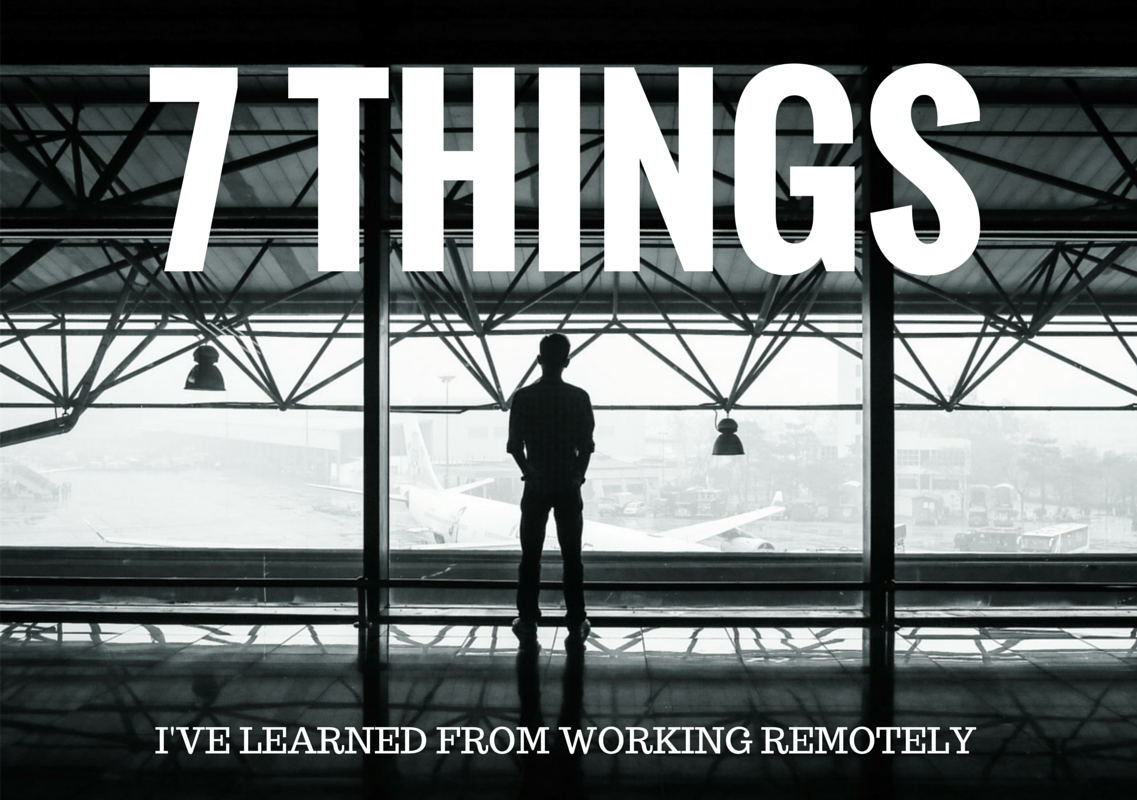Prior to co-founding Tribe Interactive, I had been working on and off as a freelancer since 2011. During that span of time, I worked in everything from online marketing, to copywriting, to web development. Along with working in multiple roles, I was also fortunate enough to work in a multitude of different settings and locations. A bungalow on a tiny Indonesian island, a balcony overlooking the Hong Kong skyline, and a hammock in the middle of the Peruvian desert. At the moment, I’m writing this from the floor of my new apartment in Yokohama, Japan.
There are wonderful benefits to working remotely, but there are also many drawbacks. This give and take of working sans office has taught me plenty about my own work habits, what “work” actually means, and how being outside of a cubicle can actually lead to some amazing breakthroughs for your business. Below are 7 of the more important things I’ve learned from working remotely.
- Trust Trumps Everything Else
Without trust, a remote working relationship is doomed to fail. Whether it’s a one-off project or an ongoing business relationship, successful remote working situations must be built on a foundation of trust. My first stint of remote work only came about because I had built up enough trust with a former employer that they knew they could count on me to get shit done, regardless of where I was located.
If you’re already on rocky terms with your boss, you may want to rethink your pitch for a remote working relationship. It’s easier to get your start working remotely by doing work for someone who already knows you, but not if they think you’re a lazy procrastinator.
- Discipline Makes All the Difference
If you’re lucky enough to be given a chance to work when you want and from where you want, there is the temptation to sleep until noon, answer a few emails, and hit the bar for happy hour with your bros. I mean, no one is going to know if you dip out a few hours early every day, right?
There’s a lot of freedom that comes with working remotely. For some, it’s too much to handle. They fall apart without having someone looking over their shoulder, making sure they aren’t spending all day on YouTube. If there’s one thing I’ve learned that holds true for all remote workers across all industries, it’s that those with a high degree of self-discipline are the ones who succeed.
- You Can’t Not Communicate
I always come back to this phrase from my Communications studies because it always holds true. No matter what you do, you’re always communicating something. Even without words, your silence conveys meaning and will interpreted by others in a variety of ways.
When you work remotely, you need to put communication at the forefront of your day to day routine. Set a reminder to send a check-in email to your boss, or schedule a quick 10-minute call to let the client know how the project is coming along. Since they can’t see you, they need to know you’re doing what you say you’re doing. Not saying anything basically tells people, “I’m not working.”
- Working Remotely Means You Work More, and You Work Harder
Seems counterintuitive, right? I mean, you finally escape the shackles of your crushing commute, your cramped cubicle, and that ridiculous notion that work can only be done between the hours of 9am and 5pm, and now you learn that you’re going to be working harder? And doing more of it?!
It’s true, but let’s clarify a few things. First, if you hate your job and the work you’re doing, it doesn’t matter if you’re doing it from Disneyland – it’s going to suck. Working remotely on something you hate only means you hate it while you sit in a different place. If that’s your situation, you need another job, not a change of scenery. Second, if you happen to enjoy your work, and you get to do it on your own terms, you’ll naturally tend to put in more hours and put forth more effort than you would if you were working in an office.
Doing a job you like in a place you like means you’re more likely to be a better worker? Who knew?!
- Schedule in Variety
They say variety if the spice of life, but I’ll be honest – I’m a ‘standard routine’ type of guy. I like waking up at the same time everyday, going for a jog, eating breakfast, and then getting down to business. If something interrupts my normal schedule – say, an unexpected errand I have to take care of – it can sometimes throw off my entire workday.
But here’s the thing about working remotely – you should plan for variety in your schedule as much as possible. Since you have more flexibility with you time, it’s important to incorporate non-working events within your daily schedule as best as possible. Isn’t the whole reason of working remotely to have more freedom with your time? Embracing variety in your schedule helps to provide a better work life balance. Just make sure you get your work done.
- “Work” isn’t What We Think It Is
What do you think of when you think of the word “work?” In recent years, the term has taken on a much broader meaning than it had in the past. “Work” now encompasses what we wear, our daily commute, our water cooler conversations, office politics, and so much more. It’s no longer about what you actually accomplish, it’s all the other crap that goes along with showing up at an office everyday.
When you work remotely, all of the other stuff that people consider to be part of “work” gets stripped away. There is no commute, no water cooler chatter, no office politics, no sucking up to your boss. Instead, “work” becomes only what you’ve gotten done that day, that week, or that quarter. It’s “what have you done?” rather than, “when did you show and how long did you stay?”
- The Work is All That Matters
In learning what work truly is and is not, it became strikingly clear to me that the work – what you actually accomplish in a given time frame – is the only thing that matters in a remote environment. This is a point that is hammered home by 37signals founders Jason Fried and David Heinemeier Hansson in their book, Remote. “When you can’t see someone all day long, the only thing you have to evaluate is the work. A lot of petty evaluation stats just melt away.”
If the biggest benefits you bring to your employer are your friendliness and promptness, than working remotely might not be the best fit for you. You need to drive actual, measurable results for your boss or your clients in order to make a long-term remote working relationship viable.
Those are just a handful of things I’ve learned while working remotely, and I continue to add to this list everyday. What had working remotely taught you about yourself, your working habits, or about business in general?




Comments are closed.